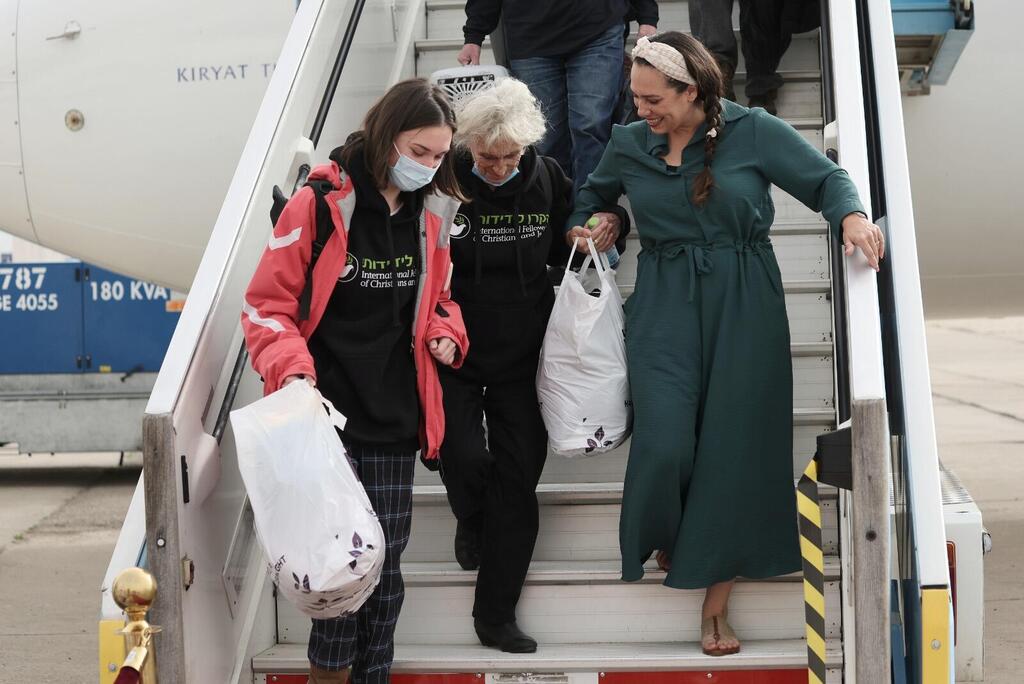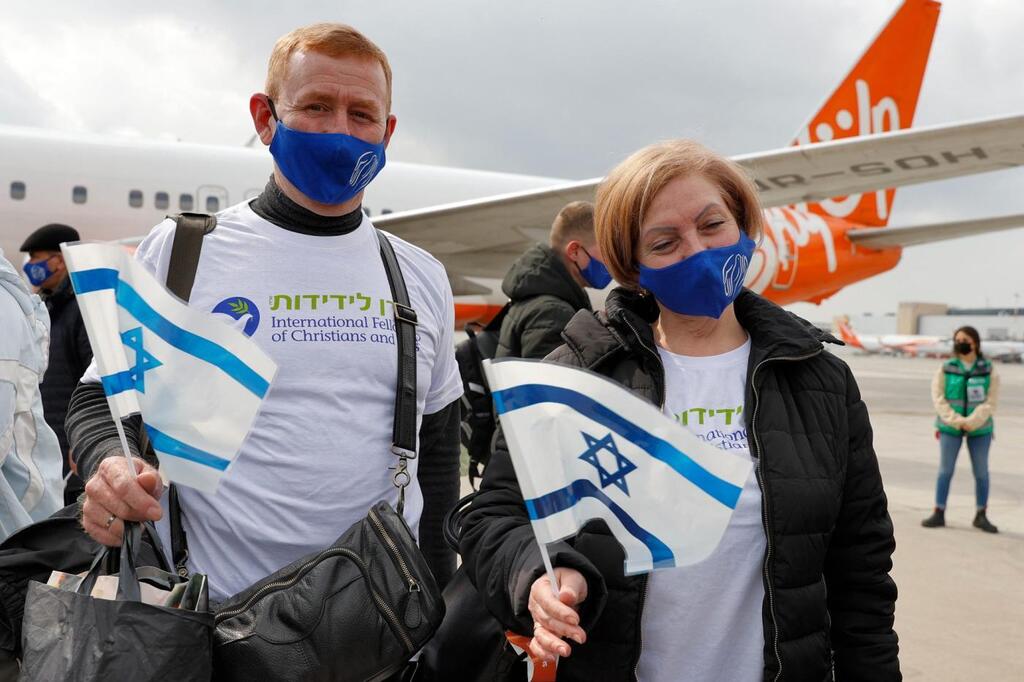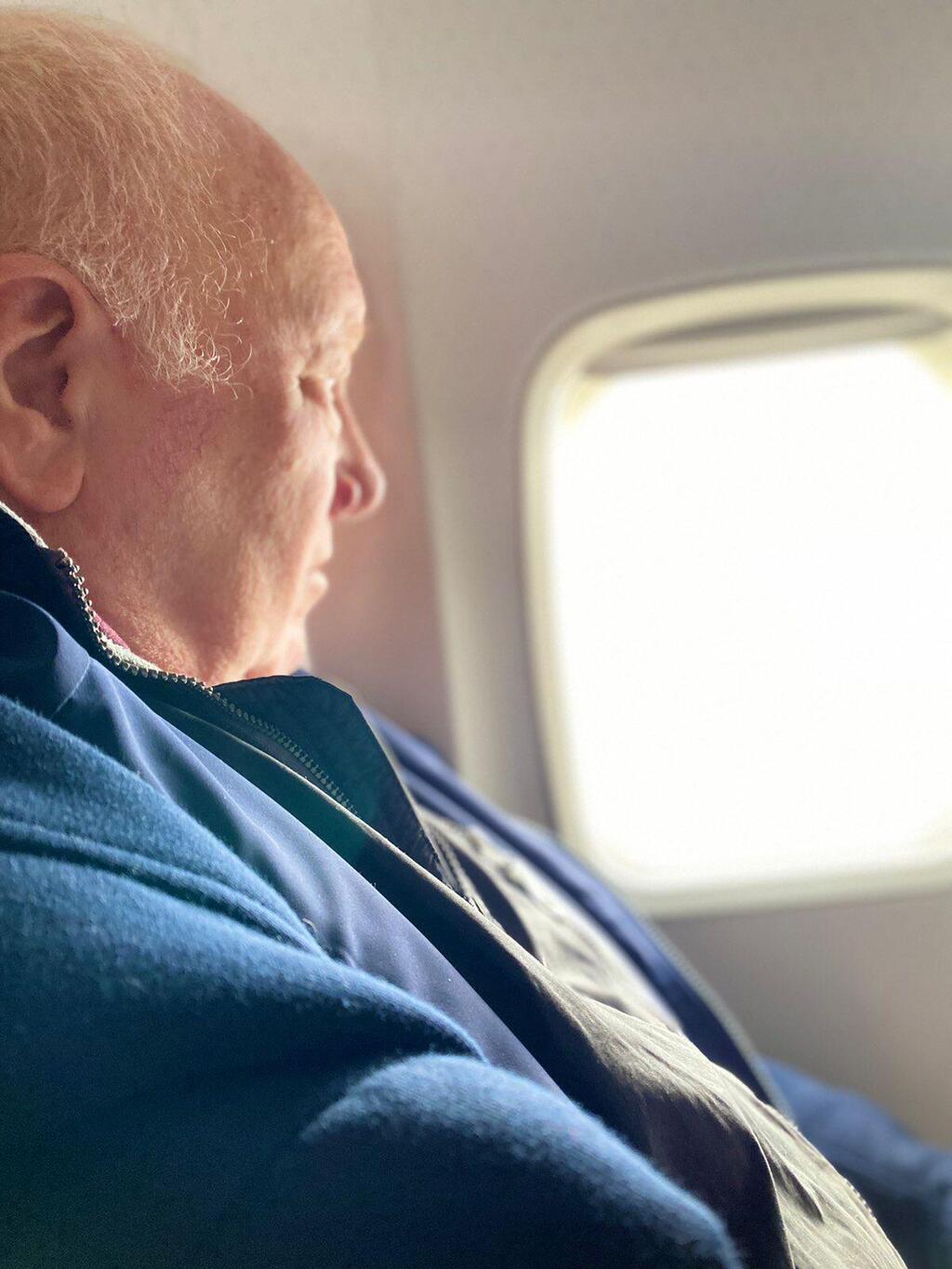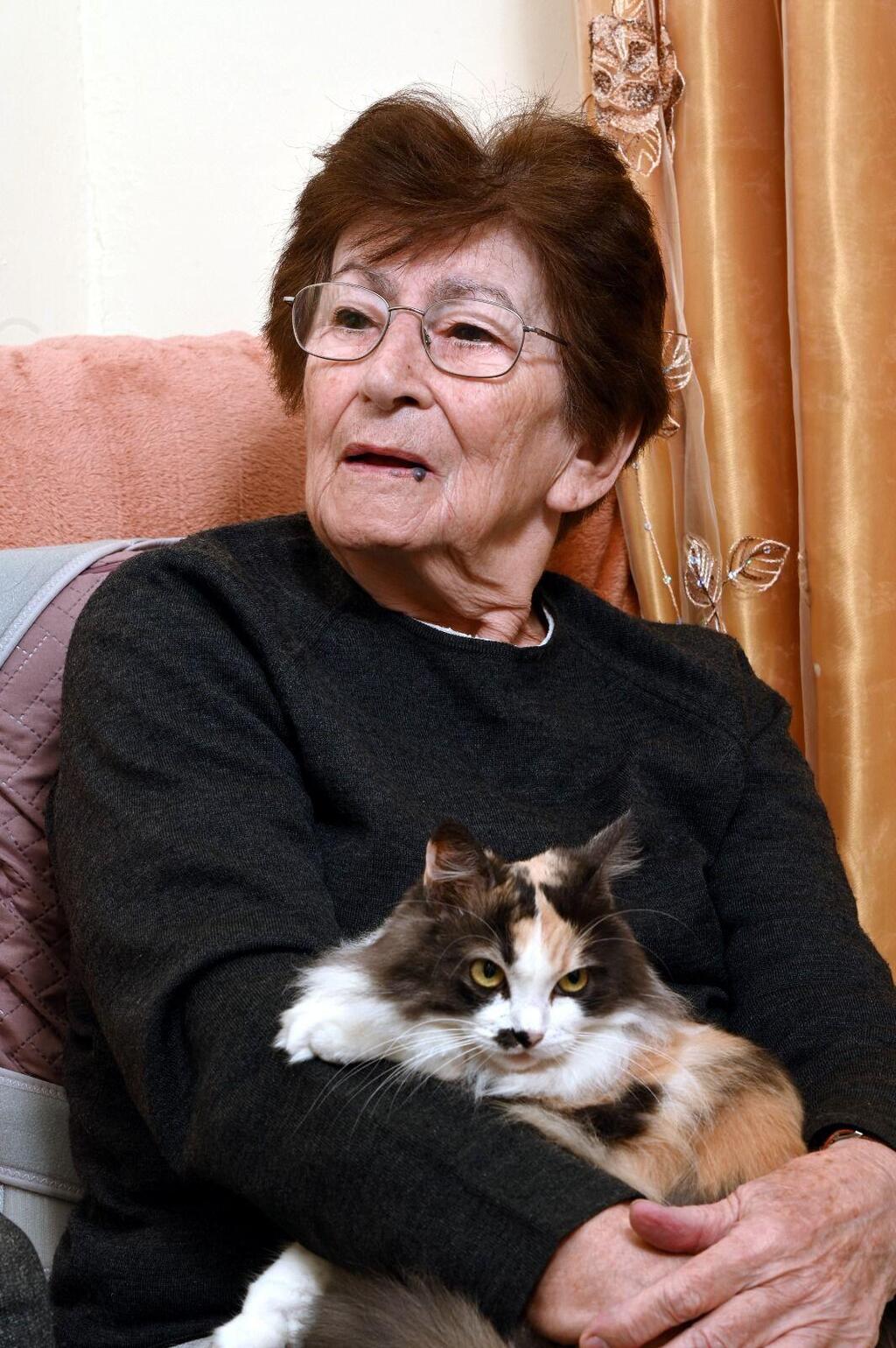In a new report in honor of International Holocaust Remembrance Day, the Aliyah and Integration Ministry said on Thursday that 52,551 Holocaust survivors have made immigrated to Israel in the last 30 years.
Out of those, 182 came from Morocco, seven from Iraq and even one from China.
4 View gallery


Ukrainian refugees coming to Israel
(Photo: International Fellowship of Christians and Jews)
Aliyah and Integration Minister MK Ofir Sofer further said that since the outset of the Russo-Ukrainian war, 500 more Holocaust survivors have made Aliyah, 350 of whom immigrated thanks to help from the International Fellowship of Christians and Jews.
The International Holocaust Remembrance Day is marked annually on January 27, the anniversary of the liberation of Europe's largest Nazi concentration camp Auschwitz concentration camp in 1945, three years before the establishment of the State of Israel.
In 2022, with operation "Olim Habayta" ("coming home"), some 75,000 Jews and their relatives made Aliyah from Ukraine and Russia.
The most prolific year in terms of Holocaust survivors making Aliyah was 1990 when 8,596 survivors of the Nazi genocide immigrated to Israel. It is closely followed by the very next year. which saw 7,670 Holocaust survivors make the Jewish state their new home.
The lowest such figure was recorded in 2020, the year of the outbreak of the COVID-19 pandemic, with only 150 Holocaust survivors immigrating to Israel.
Israel's Holocaust survivor population hails from all four corners of the globe, including the United States, Poland, Iraq, China, Madagascar, the Ivory Coast, India and Algeria. About 65% of them are above the age of 85.
Aliyah Minister Sofer said: "The International Holocaust Remembrance Day is an opportunity to remind the world of the atrocities that happened 80 years ago. This day enables us to instill our youth with the memory of these events and tell the heroic story of those who made it here."
Svetlana Brock, 83, saw her family perish during the WWII massacre of Babin Yar in Ukraine. She spend her childhood fleeing from one place to another and later returned to her native Kharkiv. Now with the raging war in Ukraine, she found herself in a painfully familiar situation but aided by the international fellowship, she managed to make Aliyah and currently resides in the northern city of Nahariya.
"Less than a year after I was born in 1941, my father went to the front and my mother stayed with me, along with my sister and grandparents. We fled to the Ural Mountains. My mom was a military factory worker so we got permits relatively quickly," she says.
"Many of my relatives weren't as fortunate and perished under the Nazis. Some died in Babin Yar and to this day I feel guilty about it. I was only a few months old but I understand we were on the road for months. Every place we went to was bombed. Due to the hunger, my mom couldn't even produce enough milk to nurse me.
After the war, we returned to Kharkiv, but living with the last name Israelievitch was hard. I experienced antisemitism at 19 and wasn't able to get into higher education despite having good grades and meeting the criteria. The committee even told me it was because of my ethnic background," she adds.
"My husband worked at a local TV station and got me a job as a sound technician and I had to be the best at all times to withstand the antisemitic gossip and noise all around me.
I didn't believe I'd have to leave my home because of war for a second time. My son knocked on my door at 4am and woke me up. He helped me pack everything and we fled to a nearby basement that was already packed with people.
"After the longest two weeks of my life, the synagogue called and told us they had room on a bus going to Chișinău in Moldova, where we could finally take a shower and sleep in real beds. Volunteers from the International Fellowship provided us with clothes, shoes and medicine. They brought in a doctor to examine me.
Panic gave way to tears of relief. In March, we got on a plane bound for Israel and all I had to my name was a small suitcase. Now I receive a monthly gift card with which I can buy groceries."
Yosef Hitrick, 83, is also a Kharkiv native. He was less than three years old when the Nazis invaded his hometown. "When the war in Ukraine began last February, all those old images in my head came back to me. The ceaseless sirens and bombings, the sound of collapsing buildings, no heat and water, all contributed to my decision to come to Israel. I'm an old man who can barely move," he says.
"When WWII broke out, my father went to the front and it was me and my mom in Kherson. We knew that if we wanted to live, we had to run, or we would end up like thousands others who were murdered.
I was only three but I recall the evacuation. People gathered on the banks of the Dnipro River, trying to get on rafts. I was scared I'd get lost. Eventually, we got on and the ride had many stops because of the constant bombings. The sound of German fighter planes above us. I can still feel my mom's heartbeats when she laid on top of me, shielding me."
They made it to Saratov in Russia, but that was no picnic either. "I was playing in the woods one day and ran into a bunch of kids who made a card from tree bark with a word carved on it. One of them approached me and handed me the card. I was happy and showed it to my mom and she began crying. The word was Zhyd, meaning dirty Jew," he says.
It's been almost a year since Hitrick made Aliyah. "The road from Kharkiv to the Moldovan border was very long. We had to zigzag, trying to avoid bombed areas. Soldiers at checkpoints stopped us many times, getting on the bus and checking all of us. It brought back painful memories from WWII," he says.
"After 23 hours, we made it to the border. The Jewish refugee camp there provided us with food and shelter. It gave me hope that we're finally going to be safe again."
Ada Botenko, 83, arrived in Israel from Odesa and currently resides in a hostel in the city of Hadera. She spends most of her time with her cat Ksyusha, whom she refers to as her only remaining memory from Odesa.
"Everything else was left behind. I spent my entire life in Odesa, where I got married and had a daughter. I graduated from university there and worked as a math teacher for 40 years. I love my hometown and this war right now is inconceivable," she says.
Originally, Botenko was planning to make Aliya next year. "I wanted to join my granddaughter who is already married and lives in Israel. When the war began, we didn't even believe Russia was bombing Ukraine, but my daughter told me people were huddling in underground train stations and that one of the bombs hit the home of a family we knew, killing everybody, so we had to leave fast," she continued.
"It was a stressful situation for me because I'm old and sick, and changing doctors causes me anxiety, but it was either stay and die or leave and be safe.
We traveled all the way to the Moldovan border, which brought back memories from WWII. In October 1941, they evacuated us to Kazakhstan. We were always cold and hungry. My parents managed to buy me some potato-skin soup.
In our recent escape from Odesa, we had very stormy weather. People were standing outside. Pregnant women, babies and grandparents. Many were crying for food."
Upon arriving in Chișinău, Ada fell ill. "Volunteers put us up in a hotel for a few days and attended to me like I was their own grandmother. They brought in a doctor, medicine and clothing. We finally made it to Israel in March.
"I have no relatives left in Ukraine. I miss my students and friends but I realize my new life is in Israel. I feel safe here and I have my daughter and granddaughter with me. It's a miracle I made it out of Odesa. God has more plans for us, so we have to keep going forward," she concludes.
With the aid of the International Fellowship for Christians and Jews, some 5,000 Ukrainian Jews and their rmade Aliya through Chișinău over the past year.




